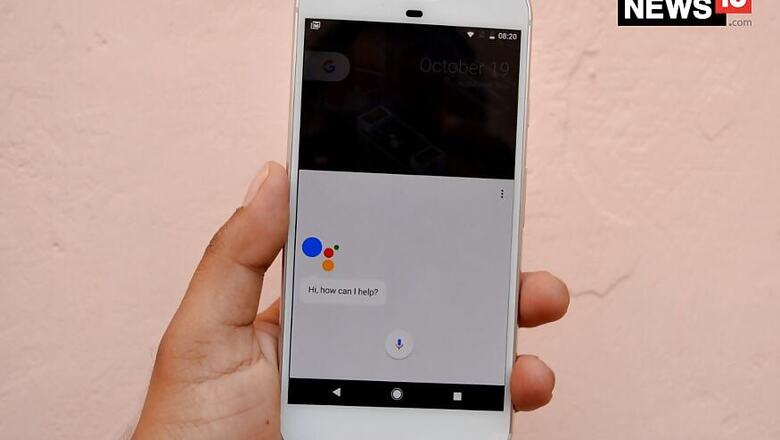
views
Google Assistant might soon change the way we use an Android smartphone. While it is too early to comment, going forward Google might kill apps on Android altogether. This is mainly because a digital personal assistant-powered by artificial intelligence should be self-sufficient.
If users have to talk to Google Assistant to just open an app and then migrate to that app for getting their work done, the purpose of having a personal assistant is somewhat lost.
With the reinforced focus on integrating artificial intelligence and machine learning in smartphones, apps in their traditional form tends to be a hindrance.
Why so?
Consider this. You want to book an Ola or Uber to get to the airport. You say “Ok Google…Book an Uber to Delhi Airport”. The assistant will provide the available type of cab (UberGo or UberX), ETA and fare estimate. You can choose the ride that you wish to avail but to confirm the booking you will have to visit the Uber app. Also, the app needs to be installed on the Android device in the first place.
Wouldn’t it be great if everything could be done over voice without having to move to the app at all? This is something Google might consider going ahead.
Let’s recall Android Instant Apps
At this year’s Google I/O developer conference, Google had already hinted at relieving users from the hassle of downloading apps by introducing Android Instant Apps. Instead of you having to download apps on your smartphone, Google will have them running on its servers. The moment you need any specific service from a particular app, you simply request for it from Google. Android Instant apps will ensure that you do not waste time, mobile data and memory in downloading apps.
Now club Android instant apps with Google Assistant
This might sound a bit ahead of time but imagine you request for service on Google Assistant through voice and it gets the job done for you through simple “YES/NO” commands.
For example, you want to buy a Reebok shoe from Flipkart. You just say: Ok Google, show me the latest Reebok shoes on Flipkart under Rs 10,000. The Google Assistant immediately lists all options. You select the one you like and tell Google to pay from your mobile wallet. The Assistant confirms the shipping address and the transaction gets confirmed without you having to visit the Flipkart app or website.
Or, you might also want the option to browse products through voice on Google Assistant.
The entire process can be secured by fingerprint, retina scan and voice recognition. The best part is that the hardware is already out there. And it is not expensive.
Why are apps becoming a pain?
We have an app for everything. Out of some millions of apps available on Google Play, reports suggest that users mostly have around 30 to 40 apps on their Android smartphone. The rest of the million apps are just waiting to grab users. Here are some reasons why apps are becoming a pain.
You have to install it: To get individual work done, you have to get separate apps. There are many apps you just use once and then they remain idle forever.
Memory: If the entire service is provided online, what is the purpose of downloading something that takes up precious memory on the phone? Not to forget, memory management and performance. To bring uniformity in app user experience, it is better to have Google take charge of apps virtually than rely on individual developers.
Updates are annoying: The constant need to update every app, whether you use or not, definitely is a pain point. From a user’s standpoint, these are things app developers should sort out with Google behind the scene and deliver the latest and best.
Security: Apps have caused Android to be one of the most vulnerable platforms. In its present form, Google seems to have little control over apps in terms of security. With Google Assistant and instant apps, Google can tighten screws a bit. Expecting users to understand security implications of random Android apps seems like a bit too much.
Making a powerful assistant
The personal assistant will have to get smarter and more useful in future in order to survive. It can’t be simply restricted to opening apps and playing music or setting alarm. While apps will continue to coexist, Google needs to work on ways to serve people entirely on its Assistant and not direct to Google Play for downloading individual apps or random websites.




















Comments
0 comment